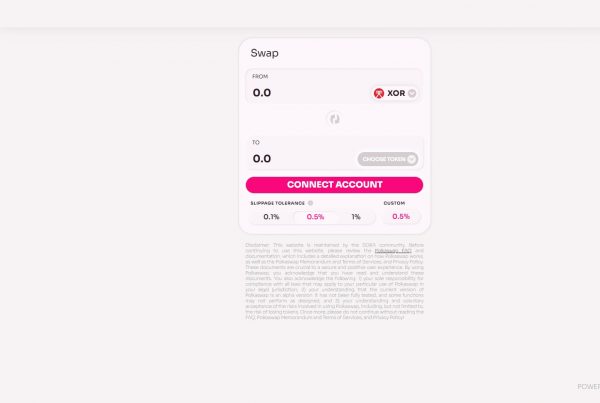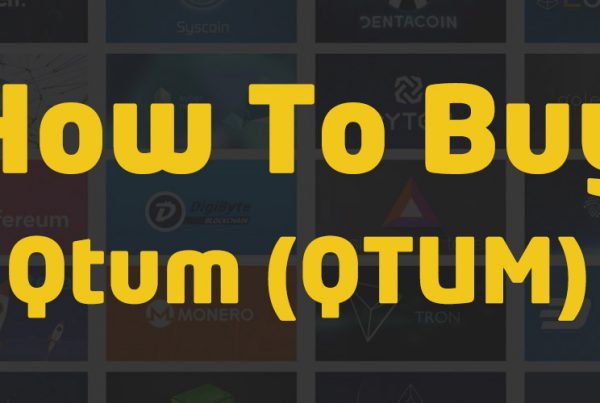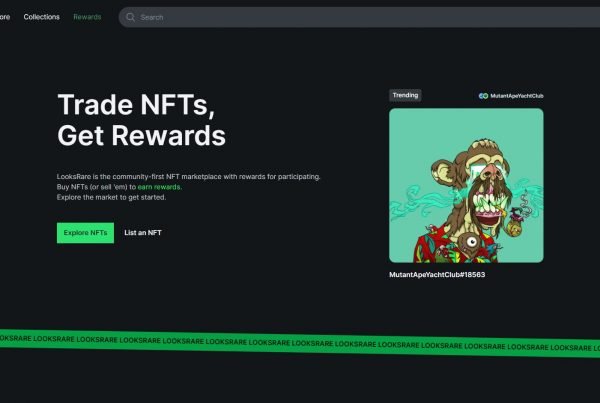An Interview
With Dadi CEO & Founder, Joseph Denne.
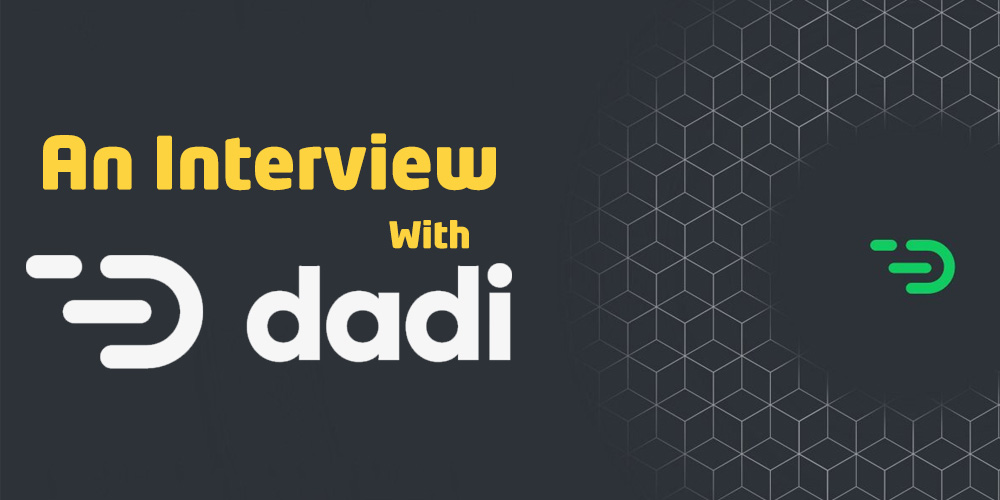
ERC20 Token
DADI is a global, decentralized cloud platform, focused on the provision of web services to help you build, scale and grow your digital products. DADI’s web services are organized around a microservices architecture that provides a series of intelligent apps for building digital products.
Every digital product is powered by web services. Every business using the web can already leverage DADI technology for improved efficiency and performance, but soon the DADI network will be able to support these web services at a price point unimaginable today – some 90% cheaper than traditional cloud services such as AWS. Plus, anyone with a laptop, games console, mobile phone or any connected device will be able to earn income by providing spare computation capacity for rent.
- A Fairer Internet – DADI is a peer-to-peer network owned by the people, shifting the balance of computational power away from large corporations
- Faster & Cheaper – The DADI network offers improved efficiency and performance, saving up to 90% compared with traditional cloud services
- Environmentally Friendly – Makes use of spare capacity from devices already in the home & office and is better for the environment than large server farms
“With DADI there is no single authority that regulates computing resource distribution. The platform uses cost-efficient fog computing organized by a Decentralized Autonomous Organization (DAO) rather than a centralized cloud structure, removing the need to pay up front for private cloud computing platforms such as Amazon Web Services (AWS), Microsoft Azure and Google Cloud. This breaks the monopoly held by large organisations, bringing the balance of computational power back to the people – and significantly reducing the cost of such services.”
– Let’s Get Started –
Thanks for taking the time out to speak with us Joseph. Care to tell us a bit about yourself and Dadi?

“We set up DADI on the back of our exit from our last business, Airlock (which was a technology company focused on content management solutions – we built Symphony CMS there over many years, which at peak had around 25k contributing developers). In many ways DADI is an evolution of the technology of Symphony: it takes the core concepts and expands on them significantly, ultimately enabling micro-services and data driven applications. Working with the component parts of a technology stack allows you to utilize power in ways that are just not possible in traditional architectures, meaning that edge processing becomes a reality. This is what our technology is all about.
I started in digital in 1998, joining a company called Web Marketing as the fourth member of the team. Will Lebens – one of my partners at DADI – was the co-founder. (We’ve been working together our entire careers.) That business sold in 2000 and in 2001 we setup Airlock. , which we subsequently sold in 2011. DADI was setup in July 2013, making it one of the oldest projects in crypto. Chris Mair, my other co-founder, joined us from Diesel in 2006.
We sold Airlock in 2011 and joined the Publicis Group as members of its senior team (I was the group technical director). We set up DADI in July 2013.
Which makes us one of the oldest projects in crypto ?”
“Wow! We’ve heard about Dadi being “years in the making” but had no idea its roots went back so far. We’re seeing more and more established and proven businesses moving to the blockchain which is a breath of fresh air from the shower of “startups” we’ve had over the past year or two. Great stuff!”

Now, We’ve noticed the Team behind Dadi is also quite “Decentralized”. We’re seeing members of your Team work on Dadi from all over the globe. How do you manage this and where do you fit in from day to day?
“We’re a very flat organisation. I describe how we work as being one of process rather than hierarchy: small teams with a clear focus and the autonomy to get the job done.
This method of working gives us a lot of flexibility, and that helps to support remote teams. It’s easy for two-four people to speak regularly – often with open video channels during development cycles – and to meet up as they see fit. Getting 35+ people together in one place regularly would mean heaving to have an office, and the issue with that is that you end up having to recruit from within a 1-hour commute time radius. That’s very restrictive when it comes to finding and hiring the best people.
And of course we surround ourselves with tools built for this sort approach, such as Slack.
I spend a lot of my time focused on business strategy, partnerships and setting our direction of travel. I’m also very hands on with our technology, writing high level briefs, reviewing deliveries and working with the core product.
There’s no typical day for me. I spent yesterday in meetings – with my senior tech and product team, with some prospective partners and with our industrial design partners, Blond. This morning was spent travelling, this afternoon in an AMA with our community, and now I’m having this conversation with with you.
The variety in what we do is what drives me – being able to set our own direction of travel, meeting new and interesting people, and ultimately delivering on a big vision with a hugely talented group of people.
I’m in a very privileged position in that respect.”
“Makes a lot of sense. Taking a look at what the Team has accomplished so far in regards to the roadmap/milestones, this strategy has obviously paid off in spades. It’s awesome to see the CEO of a company be so involved on the ground level. I see what you mean by Dadi being a very flat organisation in terms of hierarchy.”
Tell us a bit about the months/years leading up to the Dadi ICO. What lead to the decision to go “crypto”?
“We always planned on DADI being a network, but it was originally designed in the guise of a “traditional” cloud. We spent a couple of years building out our first few services and then proving them with real-world customers before moving on to the network components. Early in that process we saw the potential for running in low power and embedded devices, which gave us the vision for an edge network – a hyper local network made up of devices contributed by tens and hundreds of thousands of individuals and businesses.
The only way to do that is through the creation of incentive, and that means that there is a requirement for a method of value exchange in the network. Ultimately this means data: trading CPU cycles, access to RAM and storage as well as bandwidth. This needs to be seamless, near-instant and traversable. The blockchain is the perfect solution. Further more it enables us to implement peer-to-peer networking for components at a level that wouldn’t otherwise be possible.
And of course we surround ourselves with tools built for this sort approach, such as Slack.
I spend a lot of my time focused on business strategy, partnerships and setting our direction of travel. I’m also very hands on with our technology, writing high level briefs, reviewing deliveries and working with the core product.
Our architecture is unique in market: it enables pretty much any device (hitting out low-minimum data thresholds) to contribute and to do so through a firewall. This means that your average consumer can connect to and benefit from the network. When you look at that from an OEM perspective, it’s pretty powerful stuff. There’s a lot coming down the line that will really help to hammer home the power that we’re unlocking.
“Sounds like blockchain technology offered up the perfect storm for making Dadi possible on a technical front. It’s always great to see blockchain tech serve the needs of a network in an organic way. We’re seeing plenty of business models that simply don’t “require” a token, so it’s great to hear that the DADI token plays an integral role in the network.”
The Web/Cloud Services Industry is growing at a rapid pace. What advantage/s does Dadi present in comparison to current centralized players such as Amazon, Microsoft, etc?
“Well first and foremost DADI is a an edge network. It’s all about localized processing, data storage and delivery. This means we can get your apps closer to your customer than has previously been possible.
The services built on the network enable you to get your digital product to live faster than is possible with any other technology (“days and weeks, not weeks and months” – Matt Hobbs, Bauer’s CTO), and the pricing is extremely competitive. In time the network will be further opened to enable third party applications to run within its containerized layer
We’re thinking about our technology as the protocol for edge computing. Our vision is to create a services layer than anyone can contribute to, benefit from and use
It this respect it’s all about recognizing and upholding the founding principles of the Web – a world where everyone has the same rights and opportunities online (to quote The Web Foundation).
We believe that his can only be fully realized when individuals can benefit from the running of the network.
It this respect it’s all about recognizing and upholding the founding principles of the Web – a world where everyone has the same rights and opportunities online (to quote The Web Foundation).
So why would you use DADI for the long term? Because it gets your products live faster at a cheaper price point than is otherwise possible. Because it gets your content to your customers faster, making them more engaged in the process. And because it’s the right thing to do.
“Great points. Despite companies like Amazon having their own CDNs, i suppose they can only get so close to their customers. An Edge Network sounds like the way to go for developers that are interested in the longevity and availability of their products.”
We’ve seen the Dadi Team continuously meet roadmap/milestone deadlines time and time again. How do you maintain such a consistent release schedule? Surely there are “crunch” periods leading up to a release?
“I read a study that suggested that there are a handful of things that need to be true for someone to be happy; Space for creativity, A sense of progress, Autonomy, Belonging and No Fear. We set out to provide a framework that meets these requirements, believing that happiness is critical to performance.
As we’ve discussed, the way we work leaves a lot of room for creativity and autonomy whilst creating tightly knit teams, and we’re obviously working on tech that is moving the industry forward. We pay our team well and everyone has a vested interest through the $DADI token, which goes a long way to removing fear.
If we have a new concept of product we need to spin up, we write a top-level brief, define a new team and then have them write the detailed technical specification. In this way everyone involved has a direct stake in its development from the off.
I overheard a colleague talking about what keeps them going recently, and he said it was feeling invested in what we’re doing. That made me happy – it means we’re on the right track (even if we’re not perfect!).
I’m constantly astonished by the quality of what we’ve built – it really is amazing stuff.
“Very well said. From what we’ve seen following the progress of Dadi and various Team Members on Twitter, there’s a real sense of community and pride. Obviously a happy, healthy Team is absolutely essential!”

Could you give us a quick summary of some of Dadi’s products/apps? Store, Publish, Host, etc.
“We have a whole bunch! I like to think of them as edge services: solutions for digital products that run in the edge network. Some are network ready already, others are in testing and some are still in early development.
CDN is a just-in-time asset manipulation and delivery layer which is all about the intelligent distribution of your content (audio, video, images, assets and HTML). You can think of it like a competitor to Cloudflare, but with dynamic routing and processing built in.
Store is the underlying storage solution in our network, designed for all types of data with built-in security, privacy and redundancy. It uses IPFS, has its own interface set and can be accessed by pretty much all of the other edge services in the network.
API is a RESTful API layer. It’s designed in support of an API-first development approach, and it uses Store as its data layer.
Publish is our content editing interface set. We describe it as a writer’s window to the world of content creation – flexible interfaces that optimize editorial workflow. It’s a stunning piece of UX work and beats the hell out of traditional CMS’s such as WordPress…
Web is an interface layer that is analogous to a web server. It’s all about constructing content sets at the point of delivery, and is perfect for the delivery of web apps and web sites.
Then we have Identity, Track, Visualise, Send, Predict, Match and Queue… plus more coming down the line! We’ve been busy!
“Looks like Dadi has it all covered. Those future products down the line sound very interesting. Being website developers ourselves, we’re pretty familiar with API’s, CDNs, Publishing software, etc, but Identity, Track, Visualise and all the others sound like they’re on a whole other level!”
What Product/App are you most excited about? Your Magnum Opus, your pride and joy.
“Easy. The network.
It’s an incredibly powerful technology that opens up processing power in a myriad of devices, making use of spare computational power and in doing so reducing the carbon footprint of our industry and enabling us all to participate in the underlying technology of the Web.
The architecture is simple, but it hides a lot of complexity. We now have the ability to find the closest node on a topological basis for example, something that requires eight coordinates if you can believe it.
We have so much to write about in this space. Just need to find a spare moment…
Looking at our apps, we started with API and this is still central to the platform and very much central to our thinking. APIs are at the heart of my approach to technical architecture – a data first approach to product development. That was evident in Symphony CMS and has been delivered in full with DADI’s edge services.
“You found a way to answer that question in full while getting out of having to name your favourite app. Well done! Looking forward to seeing these apps develop and grow.”
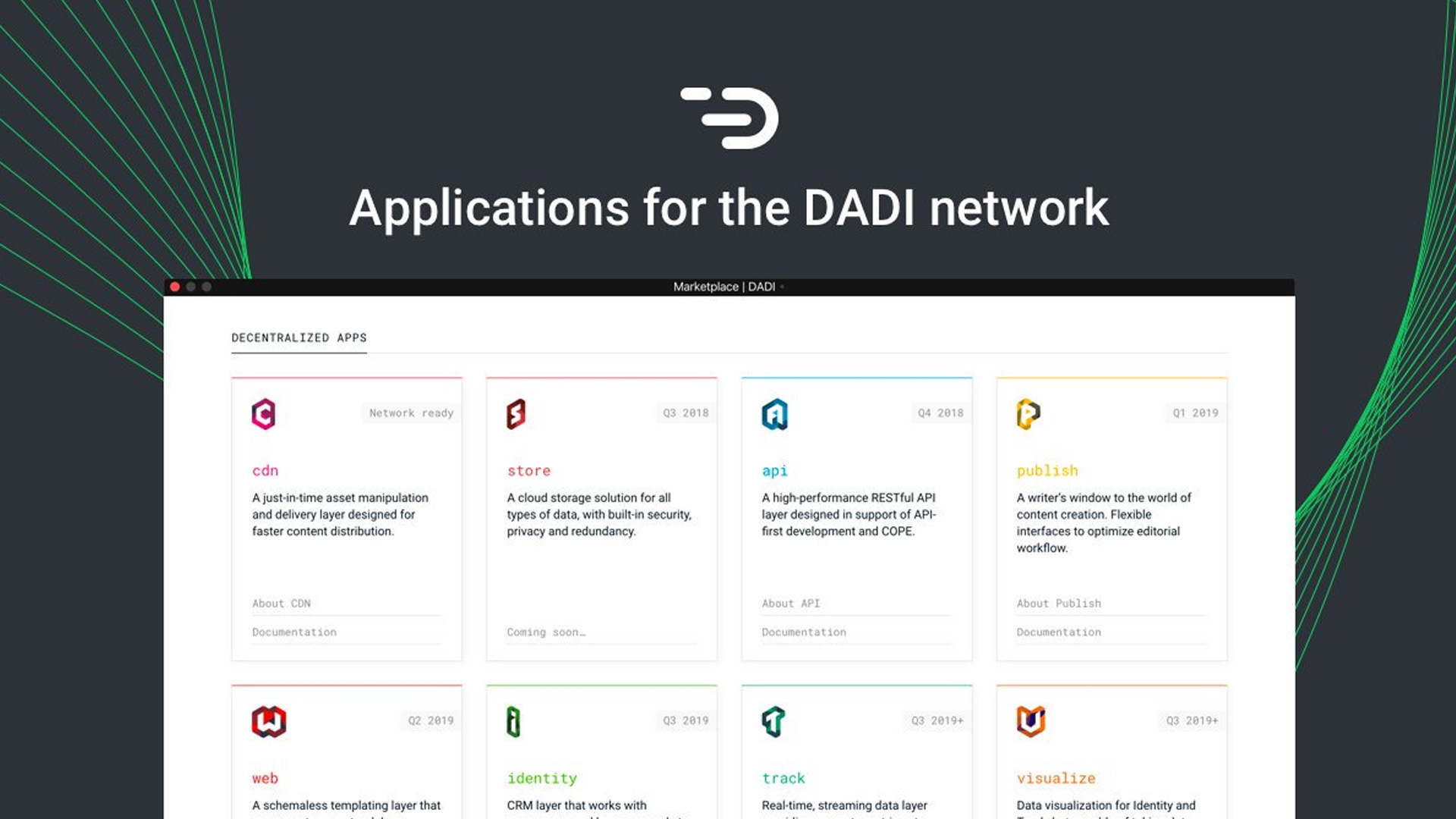
How exactly does the DADI token function in the ecosystem. Say that I have 100 DADI Tokens, what will I be able to do with them in the future? Can i do anything with them now?
“$DADI enables you to contribute to the network and to purchase data from the network – CPU cycles, RAM access, disk space and bandwidth – in the form of services. You can do that now with CDN, but access is only available through our support team. We’ll be opening it up to everyone with the release of constellation towards the end of this year/early next.”
“Very straight forward use-case. Like we commented earlier, it looks like the DADI token fits in perfectly with the ecosystem. “
The Cryptocurrency space is growing at a rapid pace. Competition is often healthy for an industry. What is Dadi doing to keep itself one step ahead of the curve?
“Competition is very healthy, and we’re operating in huge markets. The crypto communities response to competition doesn’t always recognize this, which can be frustrating. But that’s another conversation…
What are we doing to stay ahead of the curve? Delivering hard and fast. Our roadmaps have always been and always will be pretty aggressive. We have a vision for the future that is a long way away from where we are today, and our journey to that destination will be varied. I see it as a series of tacks from point to point, which allows us to pivot without fear whenever and wherever we see the need.
“Frustrating indeed. Hopefully people will take a step back and look at the bigger picture in the near future. We’ve seen what the Team has delivered thus far and it looks like there’s no slowing down.”
Where do you see the web services industry in 3-5 years? Where does Dadi fit in? Are we headed for full decentralization of the industry or a combination of centralized & decentralized models.
“Increasingly localized. Be it in offices, in local dedicated facilities (think about a supermarket having a power plant and a data centre attached), or in the home, processing will be moving strongly towards the edge. This will be driven by an ever expanding propagation of data creation points.
We’ve gone from 10 million mainframe computers to 2 billion PCs to ~7 billion mobile phones. The next step is a near infinite supply of IoT devices. These devices both need and enable edge computing. This won’t happen overnight, but then it doesn’t have to. Edge services compliment existing systems brilliantly. Our approach to roll out recognizes this: we’re starting with CDN, a service that plugs in to any application, website or game with a minimal level of effort.
“Localized! That’s an excellent way of putting it. I guess it comes back to getting data as close to users as possible. Those are some mind boggling numbers, IoT devices definitely become relevant if we expect to see these numbers continue to multiply.”
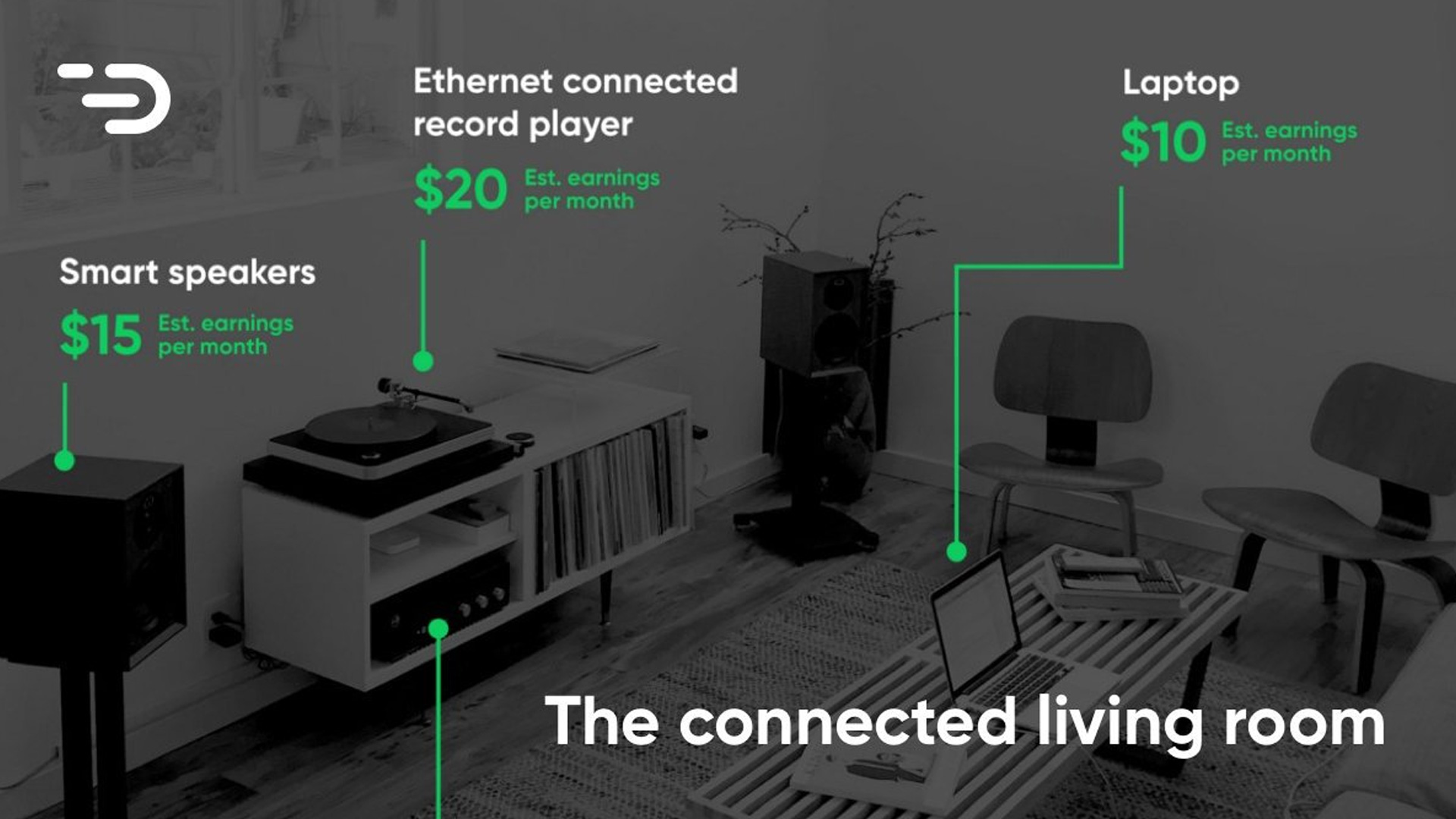
Amazon Web Services creates their own AWS coin, it launches tomorrow. How would this effect Dadi, if at all? What is stopping Amazon, Microsoft and others from going “decentralized”. Would this even be in their interests?
“Anything that helps drive mainstream adoption of crypto is a good thing from where I’m sitting. I can see a future where AWS have their own coin, but I find it difficult to see a future where AWS decentralize their network by giving the revenue from that network to thsoe who contribute. Doing so would fatally undermine the most profitable division of Amazon, which lets not forget is a publicly traded company. So I don’t see this as a threat.
Amazon, Google, Apple and the rest are looking at edge computing, but they are doing so through their own consumer devices, and see the fight as one of “owning” the living room. We’re creating an open platform that anyone can use and that pretty much any device can contribute to. In the end protocols win – there are limits to what can be done in a closed ecosystem. You can commercialize a public platform, but it cannot be proprietary. You can think of this as the difference between the Internet and iOS.
“I’d have to agree with you on the idea that Amazon would essentially be shooting themselves in the foot by going decentralized. They’d be giving away money that they obviously love! This is a question we’ve seen a few people ask on Telegram. We wanted to bring this point up because from the outside looking in, it is an obvious concern, but as you’ve explained, there’s a lot more to consider.”
What’s the Elephant in the room. What do you see being the biggest obstacle Dadi has in front of it and how do you get over it?
“Go to market. The technology is there, give or take. Our focus is rapidly shifting towards adoption, both in terms of contributors and in terms of customers.
Our approach has been to develop a channel strategy that takes in a broad set of stakeholders in this space, including OEMs, development agencies, individual developers, the crypto community, etc. We’ve worked up go to market strategies for each of the channels and are in the process of building them out.
“Going to market no doubt involves a lot of external sources cooperating in a timely fashion. If that’s the biggest elephant in the room, I’d say you’re killing it!”
We run PickACrypto.com on servers in Australia. Our website is powered by WordPress. Say that we want to move it all over to Dadi, where do we start? How long would it take? What would your average blogger have to do to get involved?
“Well you can drop WordPress templates into DADI Web with ease, and importing your database to API is very straight forward. I’d wager we could run up a build on DADI in 1-2 days. And it would be faster for your audience, cheaper to run and provide you with editorial interfaces that you’ll love.
Game on?
Developers can jump in to the source code here: http://github.com/dadi/ and read our docs here: https://docs.dadi.cloud/
“It sounds so straight forward! We’re actually hoping to finish up a Web Application in the next week or two. We’ll be in touch to see how we can get it on the Dadi Network. Super excited! We’ll include some links to developer docs below.”
We’re hearing more and more about devices such as TV’s, Game Consoles, even Light Bulbs being used to contribute to the Dadi network in the future. Anything you’d like to spill on this one? When can my Smart TV start earning DADI? Are you in talks with any companies regarding this? Spill it!
“I’d love to spill it, but I really can’t! I can say that supply chain integration is critical to network reach.
We need to be able to be deployed ahead of device shipping, as well as on to embedded devices already in market without the need for direct customer intervention.
There’s a lot happening on this front, but as much as I’d love to talk about it now, you’re going to have to sit tight and watch this space…
“Hmmm.. We’ll have to read between the lines there. Surely you’ve dropped a hint somewhere in that answer?️ Very exciting stuff!”
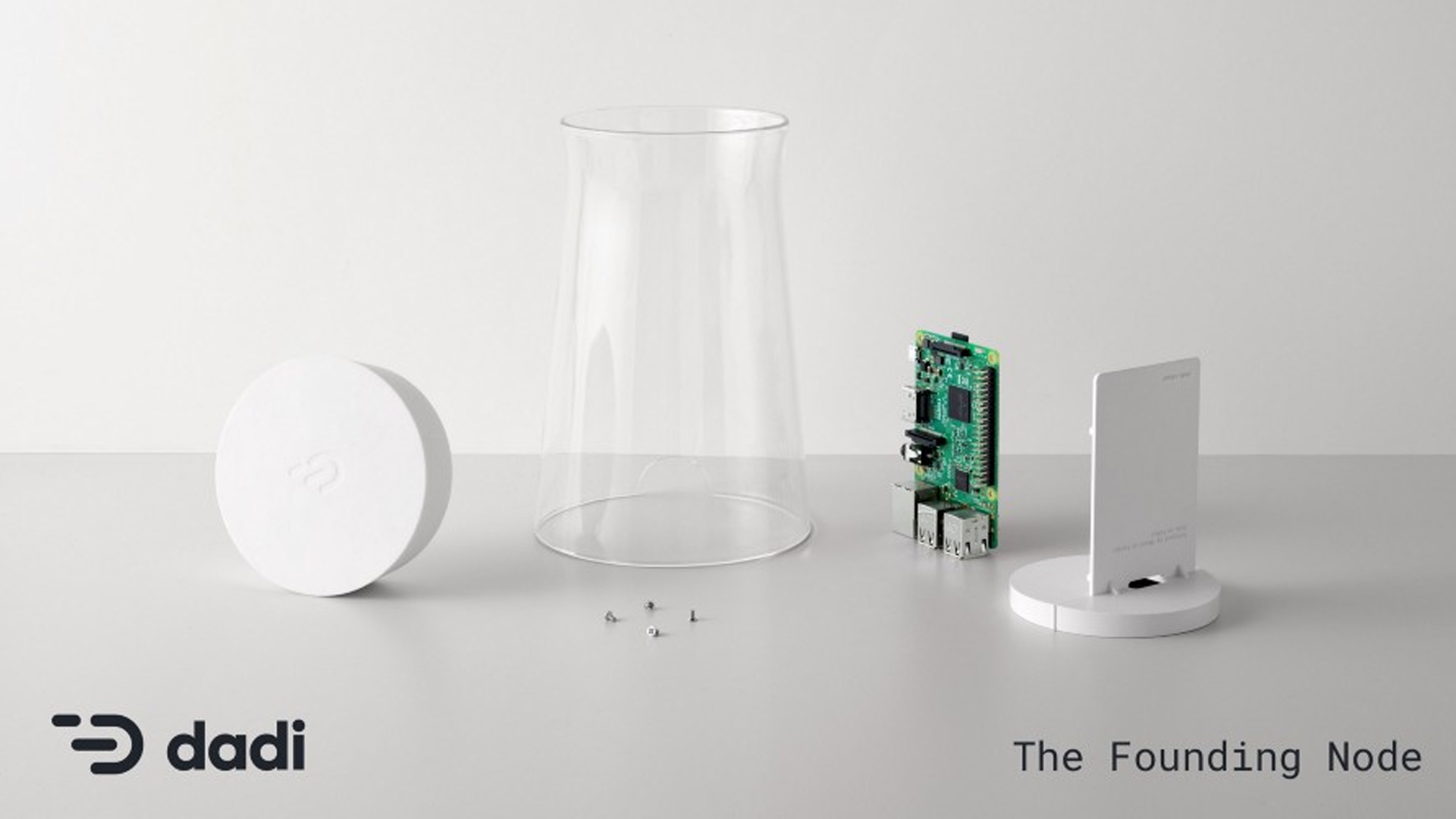
You’ve just gotten back from the most recent AMA. Was there a question you hoped would be asked but wasn’t? If so, is there anything you’d like to put out to the public while we’ve got you?
“I’m always surprised by the quality and quantity of the questions we get – very insightful stuff. We’ve spoken a lot about the Founding Node in recent AMAs. It’s our first physical device, but it won’t be our last. I can’t say much more yet, but there’s big news coming.
“Awesome! From what we’ve seen of the design of the Founding Nodes, you’ve done an incredible job of designing an aesthetic piece of tech that will truly power the decentralized web. Looking forward to seeing other physical devices down the line.”
We’ve asked you plenty of questions today. Is there anything you’d like to ask us? We’ll be honest!
“We love the crypto space and really enjoy engaging with the community, although it can be frustrating at times (“when mooooooooooon?!)
I’m across what’s going on in a lot of detail and find it incredible that there are multiple top coins whose projects are unbanked, and who do not have a legal entity behind them. How are they _ever_ going to win business and make money? Bottom line: they’re not. In this context, it’s bonkers that $DADI is priced where it is. Why do you think that is?
“Sometime in the near future when projects such as Dadi have real, working products with real impact, the community won’t have to ask about when Binance is coming or when we’re landing on the moon or even what colour Lambo to buy! The projects will speak for themselves!
I think a lot of it has to come down unfortunate timing. We’ve reviewed various projects such as Dadi that boast extremely strong fundamentals, but because their ICO’s were held at the height of the market they unfortunately debuted on exchanges in the middle of the great crash of January/February 2018. We’re just now starting to see these projects recover as confidence starts to creep back up.From what we’ve reviewed, there’s just no reason why DADI should be valued below it’s original ICO price. We’ve honestly got to put it down to the unfortunate ICO hype that plagued the later months of 2017. Dadi was a Gem in the rough and as we’ve seen, most ICO’s from December/January are still yet to recover in terms of token value.
When you take a look at how much the Web Services industry is worth and how fast it’s growing. People will wish they had a time machine to go back and pick up DADI a few years from now.
We’ve said it before and we’ll say it here. Don’t bite the hand that feeds. Take advantage of the poor market conditions while you can!”
“Yep, I think that’s pretty much on the money. The fall out from the retraction has created a lot of opportunity, and ultimately helped the best projects to stand out from what was a very crowded field.”
“We pride ourselves on remaining unbiased but I’ve got to say, there are projects out there with Market Caps under $10 Million that are truly once in a lifetime opportunities. Meanwhile, we’ve got people investing in projects worth hundreds of millions that haven’t released updates in months.
The patient, smart investors will truly reap the rewards of this rapidly growing industry.Well, I’ve really got to thank you for taking the time out to speak with us today Joseph!”
“My pleasure. And thank you for inviting me.”

